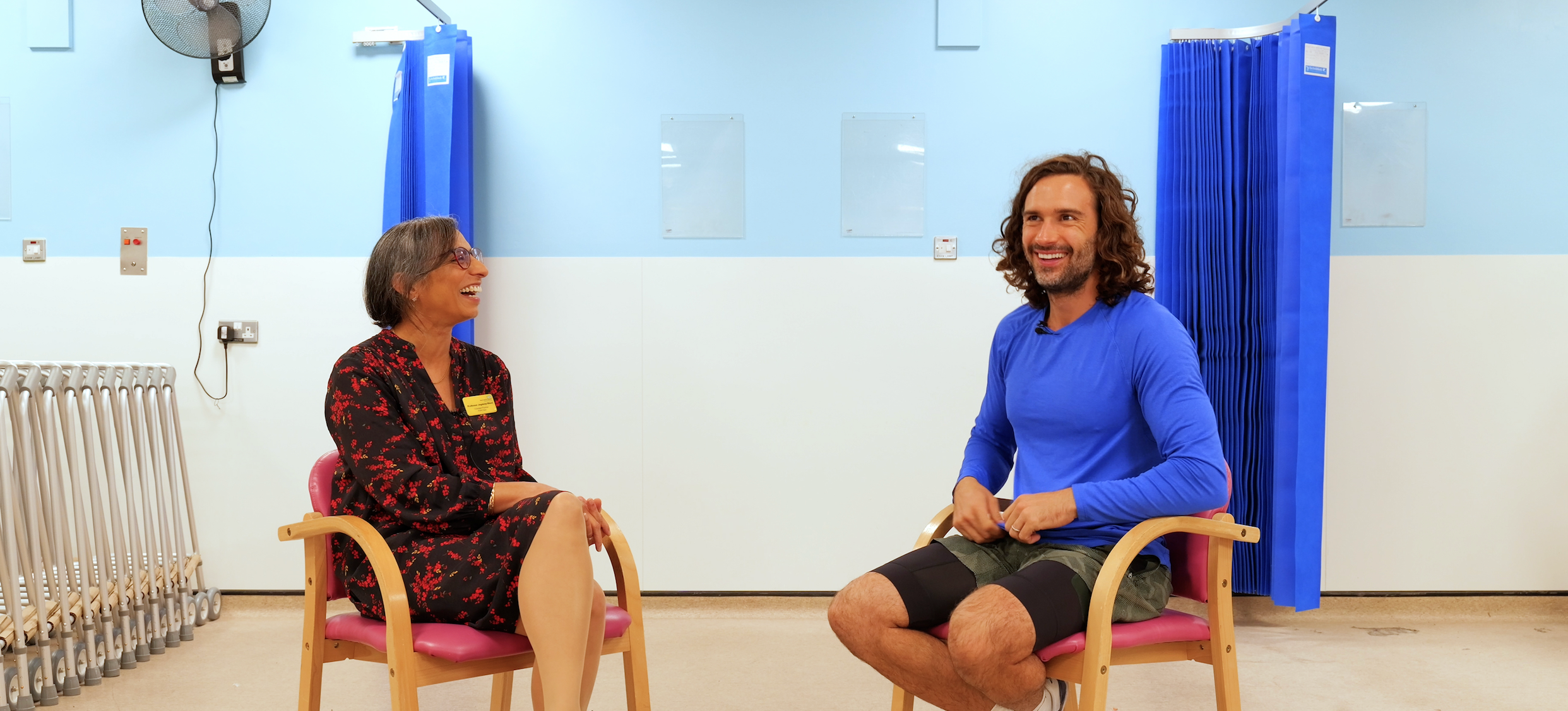Joe & Rosie’s Strength Challenge: What you need to know
Are you looking to build strength and confidence? This is for you.
Get an annual subscription to The Body Coach app for just £69.99 (usually £89.99)

Did you know 7,000 operations are happening every day in the NHS?
Professor Jugdeep Dhesi, consultant geriatrician at Guy’s and St Thomas, specialises in the care of older people, particularly those who are going to be having operations or any kind of surgery.
She sat down with Joe to speak about how crucial exercise and activity is before surgery.
“Exercise is so important,” she says. “It’s important generally in life, of course – but of the 7,000 operations we have happening every day, 10-15% end up having a complication.”
By doing things like involving people in physical activities and better nutrition, she says, we can reduce those complications and help people live healthier lives for longer.
Prof. Dhesi, who is also President of the British Geriatrics Society and deputy director at the Centre for Perioperative Care, wants to get the message out there that, particularly when waiting for surgery, you can help to get yourself as fit as possible. “You’re going to be putting your body through stress,” she says. “So you’ve got to be ready for that stress.”
Stats show that around three quarters of over 75s are inactive, so the more we join together to get the message out there of how beneficial it can be, the healthier this generation will be.
Whether you’re waiting two weeks or 18 weeks for surgery, you can make a difference in those weeks leading up to it, says Prof. Dhesi.
“Getting physically active will help the cardio-respiratory side of things, and muscle strengthening will have an impact helping you become stronger and potentially more mobile,” she says.
“You could also start to work on your balance, which would reduce the risk of falls after an operation like a knee or hip replacement.”
For some, that activity may be basic activity such as walking up and down the stairs or doing 10 minutes of movement a day. There are many ways you can build it into your day-to-day life. For those who are more active, it might be doing something more rigorous like a workout.
Of course, as well as the physical benefits, activity and exercise can also have benefits in terms of your mental health and cognitive boost, says Prof. Dhesi.
It’s not just about the operation, she adds, it’s about getting your health as good as possible after the operation for the long term and setting up these long-lasting habits.
Interestingly, for some people who work on getting more active and using their joints better, often end up not needing an operation. But even if they do have an operation, they’re less likely to have complications and they’re likely to get out of hospital better, fitter, and faster.
It’s not always easy to motivate yourself to get started or get moving, she adds, but it’s about taking that responsibility on yourself. “We use the ‘use it or lose it’ saying: we need to keep moving our bodies as well as we possibly can to maintain that function for as long as possible.”
You can watch Joe’s workout routines for people waiting for surgery on The Body Coach TV.